At-Home Sleep Testing – Denver, CO
Sleep Testing in the Comfort of Your Bed
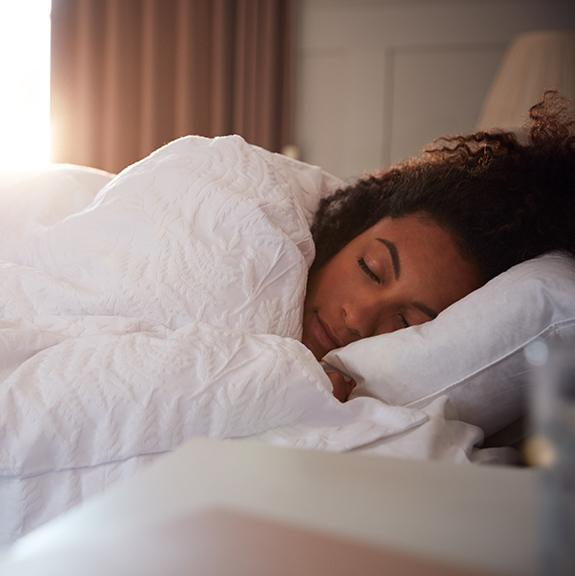
The only sure way to diagnose sleep apnea is to have a sleep test performed in order to evaluate the symptoms that you’re experiencing at night, such as irregular breathing, an elevated heart rate, and other telltale vital signs that could be affected by a sleep disorder. While this used to mean having to travel to a special laboratory, there are benefits to having the test done during a “typical” night – in other words, while you’re sleeping in your own bed.
Here at Downtown Denver Sleep Solutions, Dr. Thompson favors tests that patients can complete at home. When you’re allowed to sleep under “normal” circumstances, we’re more likely to get an accurate reading! Our at-home test is small and simple to use, and it has been designed not to interfere with your sleep. Contact us today to schedule a consultation if you’re interested in at-home sleep testing in Denver, CO.
Why Choose Downtown Denver Sleep Solutions for At-Home Sleep Testing?
- Skilled, Qualified Member of AADSM
- Various Types of Treatment Available
- Convenient Hours of Operation
What Is an At-Home Sleep Test?
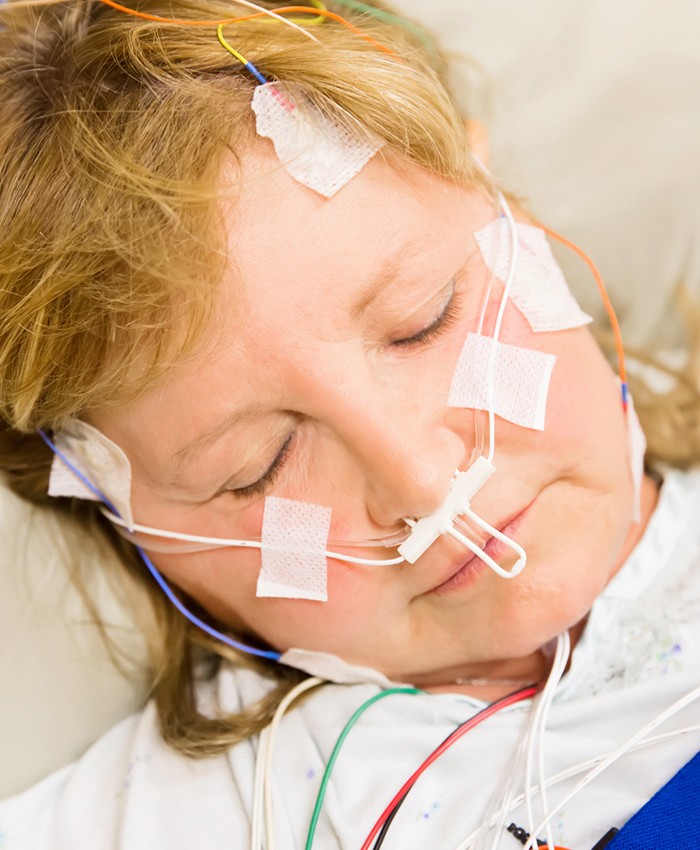
An at-home sleep test is a simplified version of a sleep study used to diagnose sleep apnea. Traditional sleep studies take place in a laboratory setting, but with an at-home sleep test, the process will take place while you’re sleeping in your own bed. The process involves a specialized device with a number of sensors that monitor your breathing patterns throughout the night. We can use these patterns to determine whether you’re suffering from sleep apnea.
What Does an At-Home Sleep Test Measure?
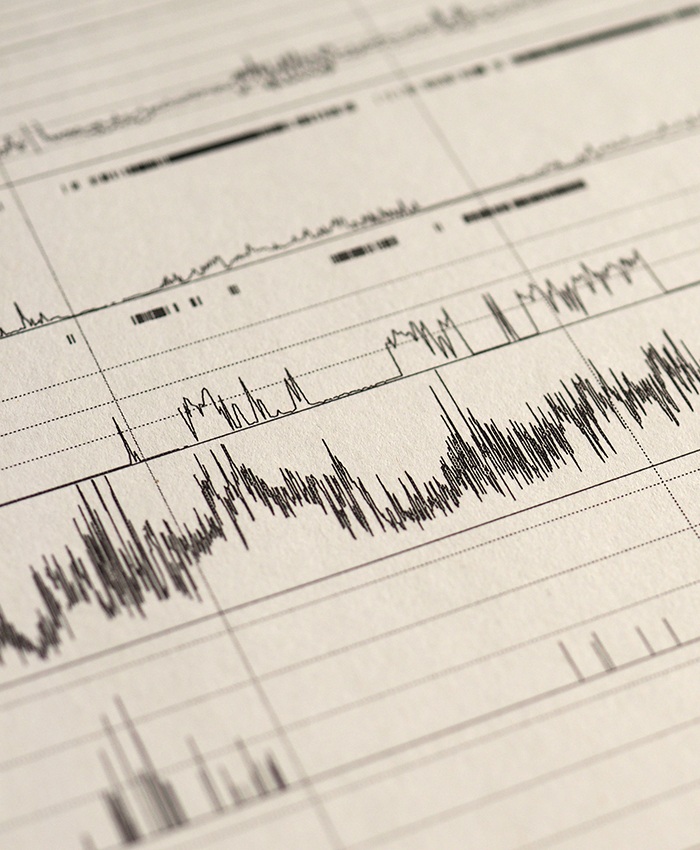
It should be clarified that an at-home sleep test does not directly analyze your sleep. (For example, it won’t tell us how long you spent in REM sleep.) It does, however, measure oxygen saturation, heart rate, airflow, movement in your chest and abdomen, and time spent snoring. In other words, much of the information it gathers is specifically related to your breathing. This makes the test extremely useful to identifying sleep apnea, but you might need a lab sleep test if you might be suffering from a different disorder.
The Benefits of an At-Home Sleep Test
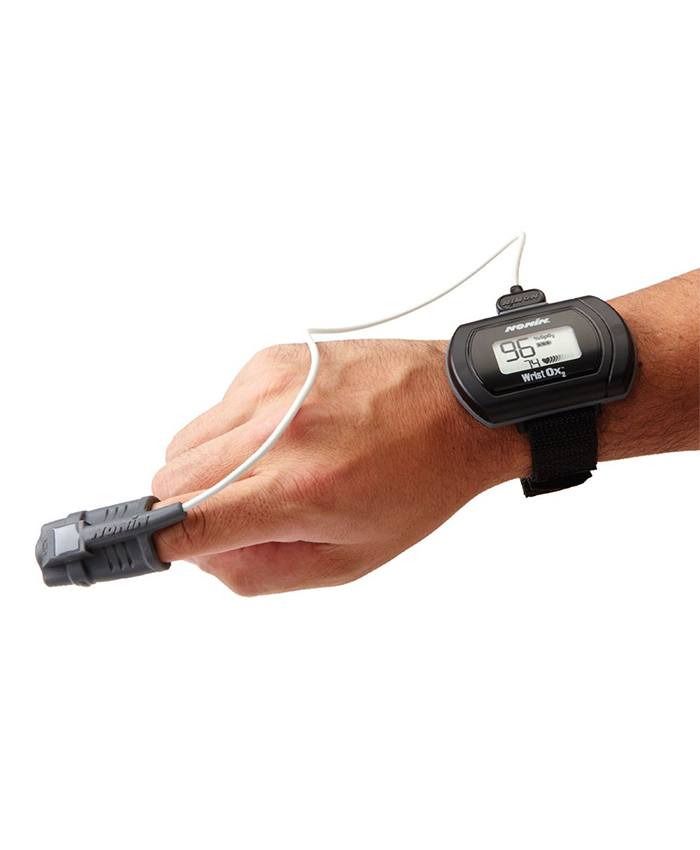
- A More Comfortable Process: It can be difficult to calm down and sleep like you normally do in an unfamiliar setting. An at-home sleep test lets you enjoy the comforts of your own bed during the process.
- Lower Cost: While prices may vary based on location, at-home sleep tests tend to be less expensive that those performed in a laboratory.
- Convenience: Driving to a sleep laboratory that’s located far from where you live can be highly inconvenient. With an at-home test, you won’t have to worry about this.
The At-Home Sleep Test Process
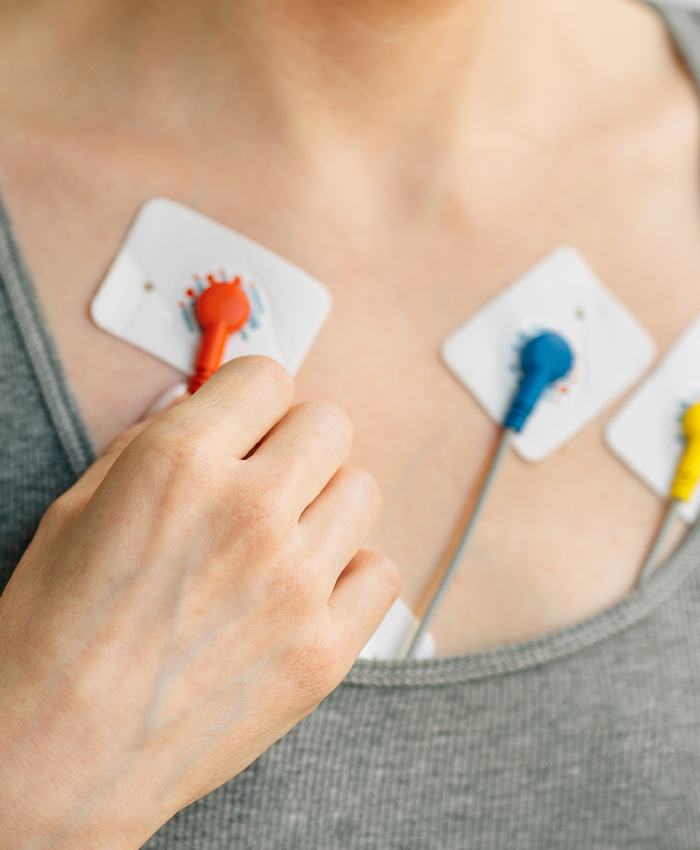
First, we need to prescribe the test once we’ve found reason to believe that you could possibly be suffering from sleep apnea. Once you get home, you’ll need to follow our instructions for placing the various sensors on your finger, abdomen, and chest. Most of the time, you’ll only need to use the sleep test for one night before you return to our clinic. Once we’ve had a chance to review the data from the test, we can make a proper diagnosis and start planning the next steps of your treatment.